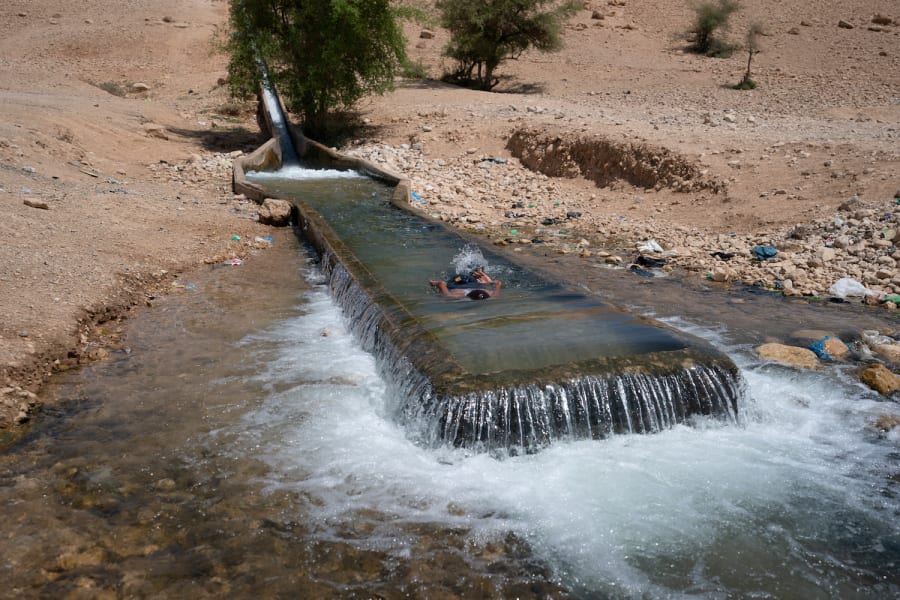Does Israeli upgraded water sale to Jordan signify a policy shift from the previous government?
Bennett government may be betting on better Israeli-Jordanian ties to boost relations with Washington, Biden administration

In an effort to improve diplomatic ties with Amman, Israeli Prime Minister Naftali Bennett recently approved the immediate sale of 50 million cubic meters of water to neighboring Jordan and the Jewish state is expected to export the same amount of water to Jordan next year.
Bennett’s spokesperson indicated that the Jordanians could potentially receive the same annual amount of water over the next five years.
After years of deteriorating relations between the two nations, this water sale signifies a possible shift in Israeli policy towards Jordan.
Earlier this year, Defense Minister Benny Gantz secretly met with Jordan’s King Abdullah II and was quoted as blaming Prime Minister Benjamin Netanyahu’s chilly relationship with Amman for “hampering” progress between the two countries.
Now, the Biden administration has reportedly already pressured the Bennett government to increase the water supply to Jordan. King Abdullah just traveled to D.C. to meet with U.S. President Joe Biden – the first Arab leader to meet with the president in the White House since his election.
Israel’s overtures toward Jordan appear to be part of an overall policy shift by Jerusalem and an effort to boost Israel's standing with Washington. While Netanyahu developed close ties with the Republican Party, particularly former President Donald Trump, he was frequently criticized for neglecting the Jewish state’s relations with the Democratic Party.
By contrast, Bennett has stressed that he intends to restore bipartisan support for Israel by improving ties with the Democrats and forging close relations with the Biden administration. Since Jordan is a close U.S. ally, the Bennett government may be banking on upgraded Israeli-Jordanian ties to boost Jerusalem’s relations with Washington in general, and the Biden administration in particular.
While bipartisan U.S. support is crucial for Israel’s security, there are likely also other factors behind the emergence of an Israeli policy shift towards Jordan. During his tenure, Netanyahu focused on forging ties with countries that do not share borders with Israel. Consequently, Jerusalem’s ties strengthened with African nations, the Gulf states and Morocco while relations with Jordan and the Palestinian Authority remained tense.
In fact, Netanyahu was criticized for what political enemies said was neglect and even sabotage of Jerusalem’s bilateral ties with its eastern neighbor.
And that brings us back to the water issue. Largely consisting of desert, the Hashemite Kingdom of Jordan is one of the most water-stressed countries in the world. Since the 1994 peace agreement between Israel and Jordan, the Jewish state supplies approximately 55 million cubic meters of water annually to Jordan. However, due to a dramatic influx of some 3 million refugees in from Syria and Iraq, Jordan’s water needs have increased dramatically in recent years.
Tensions around the al Aqsa Mosque in Jerusalem’s Old City in 2017 contributed to a downturn in relations between Israel and Jordan, which is the custodian for Muslim sites in Jerusalem. Netanyahu started using Jordan’s water dependency on Israel as a tool of pressure.
Netanyahu rejected a Jordanian request for additional water supplies and, earlier this year, bilateral Israeli-Jordanian ties unraveled even further when the Netanyahu-government was accused of undermining the Jordanian crown prince’s visit to Jerusalem by imposing strict limitations on his security detail. The Jordanians retaliated by temporarily denying Netanyahu’s plane to pass Jordanian airspace, thereby forcing the former Israeli prime minister to cancel his trip to the United Arab Emirates.
During his recent historic visit to the UAE, Israeli Foreign Minister Yair Lapid thanked Netanyahu for the Abraham Accords.
However, unlike Netanyahu, Bennett appears to have concluded that building stable bridges with faraway countries simultaneously requires maintaining and repairing diplomatic bridges next door in neighboring Jordan.

The All Israel News Staff is a team of journalists in Israel.














